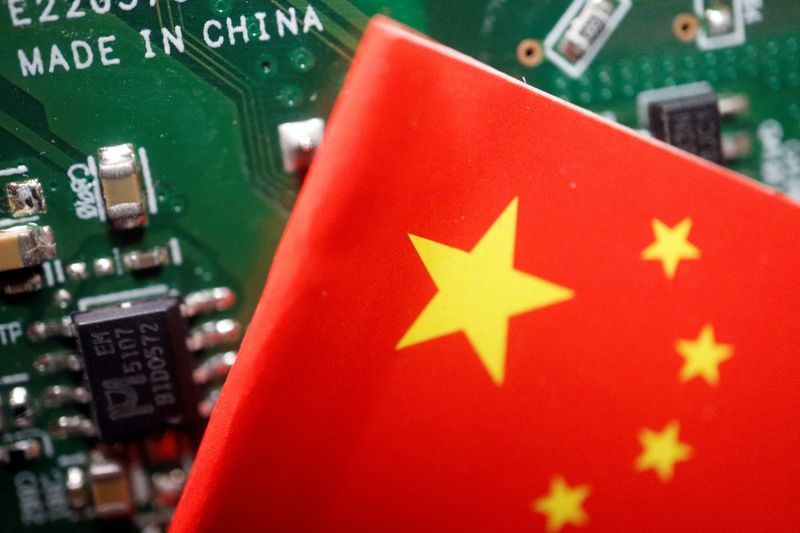Select Language

SHANGHAI (Reuters) - China's semiconductor index leapt close to a three-year high on Monday (NASDAQ:MNDY) on bets a U.S. order halting Taiwan Semiconductor Manufacturing Co's shipments of advanced chips to Chinese customers could accelerate Beijing's self-reliance efforts.
TSMC will from Monday suspend shipments of certain sophisticated chips to some Chinese clients after receiving a letter from the U.S. Department of Commerce imposing export restrictions on those products, Reuters reported on Sunday.
Analysts said that while the move might lead to some short-term pain for Chinese firms involved in designing chips for artificial intelligence accelerators and graphics processing units, it could benefit the domestic chipmaking sector as companies would have few alternatives.
The CSI Semiconductor Index jumped more than 6% during trading on Monday to the highest since Dec. 20, 2021, while the CSI Integrated Circuits Index rose 5%. Shares in SMIC, China's largest foundry and the country's main alternative to TSMC, rose more than 4%.
"In the medium and long term it will force the reorganization of the supply chain, increase the demand for domestic advanced process production capacity, and promote technological breakthroughs in upstream semiconductor equipment and materials," Chinese brokerage Cinda Securities said in a note published on Sunday.
Several Chinese technology firms and chip designers have in recent years sought to design their own advanced processors after the U.S. sanctioned Huawei Technologies and barred the likes of Nvidia (NASDAQ:NVDA) and AMD (NASDAQ:AMD) from selling their most sophisticated chips to China.
Many rely on Taiwan-based TSMC, the world's leading contract chipmaker, for production. In the third quarter, 11% of TSMC's revenue came from China, the company said.

